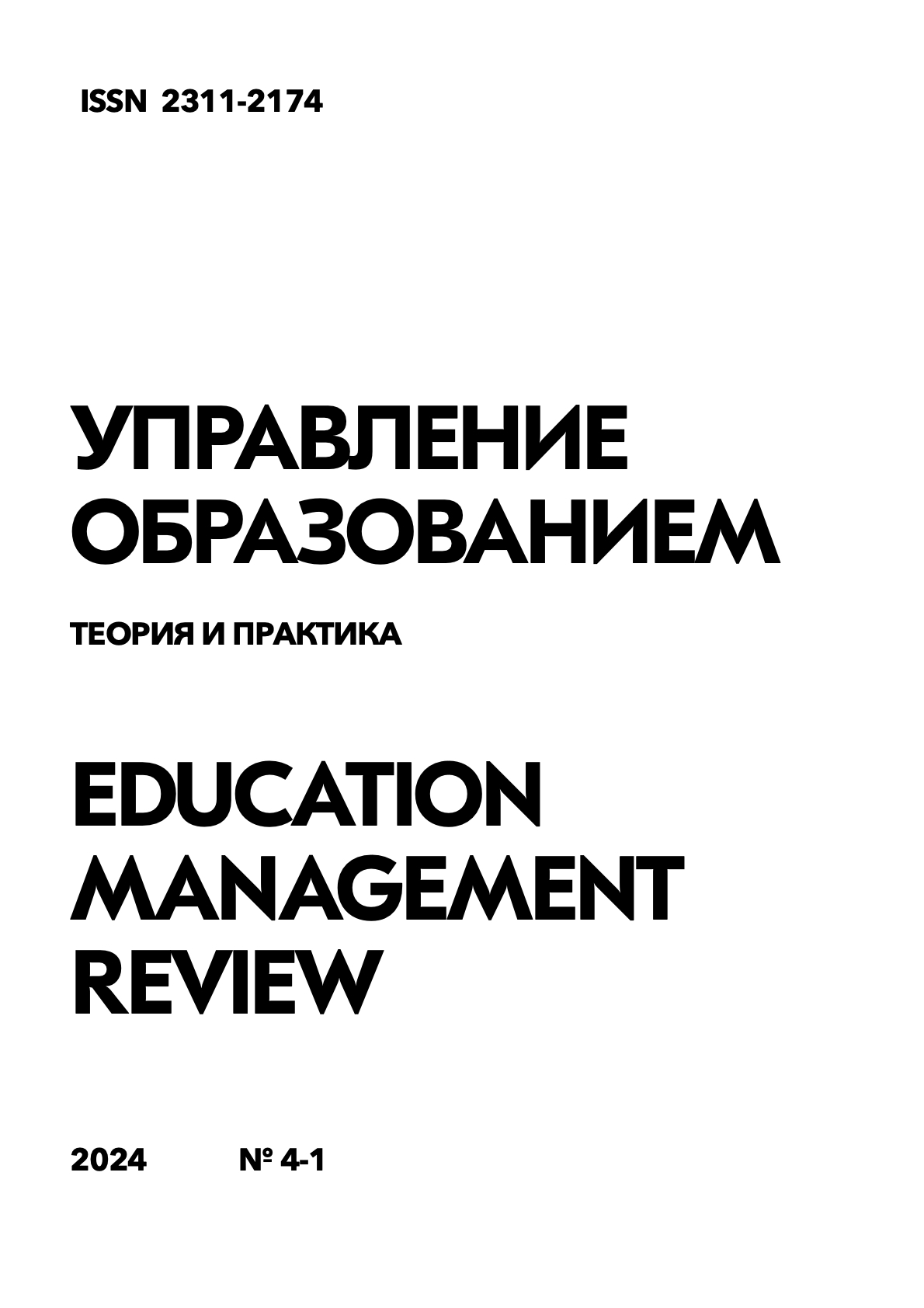Analysis of the effectiveness of online courses using machine learning methods
Keywords:
MOOC efficiency, e-education, digital education, machine learningAbstract
The article describes the results of an analysis of the effectiveness of online courses on the «Digital Nanograd» platform using machine learning algorithms. The study found that course volume and modularity have a significant positive impact on course effectiveness. Interactive formats for presenting information and assignments with automatic checking also play a significant role. The model trained using the random forest algorithm showed the best results. The article describes the results of an analysis of the effectiveness of online courses on the "Digital Nanograd" platform using machine learning algorithms. The study found that a small course volume and modularity have the most positive impact on course effectiveness. Interactive formats of presenting information and assignments with automatic checking also play an important role. A model trained using the random forest algorithm showed the best results. The article presents an analysis of the effectiveness of online courses using machine learning methods. The main focus is on the development and application of models capable of predicting student success based on various factors such as platform activity, interaction with course materials, and demographic data. A comparison of various machine learning algorithms, including logistic regression, decision trees, and neural networks, was conducted to determine the most accurate approach. The research results demonstrate a significant improvement in the accuracy of performance prediction, allowing educational platforms to personalize learning and improve the quality of services provided.
References
Авдеева С. М., Уваров А. Ю., Тарасова К. В. Цифровая трансформация школ и информационно-коммуникационная компетентность учащихся // Вопросы образования. 2022. № 1. С. 218-243.
Андреева Н.В., Рождественская Л.В., Ярмахов Б.Б. Шаг школы в смешанное обучение. М., 2016, 282 с.
Галактионова Т.Г. Тексты «новой природы» и новая грамотность // Тексты новой природы в образовательном пространстве современной школы: мат. VIII Межд. науч.-прак. конф. «Педагогика текста» (21 октября 2016 г., Санкт-Петербург) под ред. Т.Г. Галактионовой, Е.И. Казаковой. СПб.: ЛЕМА, 2016. С. 13-17.
Гринева М.И. Клиповое мышление во благо ученика // Тексты новой природы в образовательном пространстве современной школы: мат. VIII Межд. науч.-прак. конф. «Педагогика текста» (21 октября 2016 г., Санкт-Петербург) под ред. Т.Г. Галактионовой, Е.И. Казаковой. СПб.: ЛЕМА, 2016. С. 13-17.
Джанелли М. Электронное обучение в теории, практике и исследованиях // Вопросы образования. 2018. № 4.
Ермаков Д.С., Кириллов П.Н., Корякина Н.И., Янкевич С.А. Персонализированная модель образования с использованием цифровой платформы. Под ред. Е.И. Казаковой // Современное образование, 2020. 44 с.
Казакова Е.И. Тексты новой природы: проблемы междисциплинарного исследования // Психологическая наука и образование. 2016. Т. 21. № 4. C. 102-109.
Казакова Е.И. Цифровая трансформация педагогического образования // Ярославский педагогический вестник. 2020. № 1(112). С. 8-14
Калимуллина, О.В., Троценко И.В. Современные цифровые образовательные инструменты и цифровая компетентность: анализ существующих проблем и тенденций // Открытое образование. 2018. Т. 22. № 3. С. 61-73.
Лебедева М. Ю. Стратегии работы с цифровым текстом для решения учебных читательских задач: исследование методом вербальных протоколов // Вопросы образования. 2022. № 1. С. 244-270.
Пермяков О.Е. Электронное обучение: дидактическое проектирование курсов // Образовательная политика. 2019. №4 (80).
Романова Н.Л. Онлайн-курсы как инновационная форма дистанционного обучения // Педагогика высшей школы. 2018. No 2. С. 5-8.
Уваров А.Ю., Гейбл Э., Дворецкая И.В. Трудности и перспективы цифровой трансформации образования: под редакцией А.Ю. Уварова, И.Д. Фрумина, науч. ред. Я.И. Кузьминов, И.Д. Фрумин. М.: НИУ «Высшая школа экономики», 2019. 344 с.
Cooper S. MOOCs: Disrupting the university or business as usual? // Arena journal. 2013. № 39-40. P. 182.
DeBoer J., Ho A.D., Stump G.S., Breslow L. Changing «course» reconceptualizing educational variables for massive open online courses // Educational researcher. 2014. № 43(2). рр. 74-84.
Freitas S.I., Morgan J., Gibson D. Will MOOCs transform learning and teaching in higher education? Engagement and course retention in online learning provision // British journal of educational technology. 2015. № 46(3). рр. 455-471.
Hansen J.D., Reich J. Democratizing education? Examining access and usage patterns in massive open online courses // Science. 2015. Vol. 350(6265). рр. 1245-1248.
Kizilcec, René F. Towards Equal Opportunities in MOOCs: Affirmation Reduces Gender & Social-Class Achievement Gaps in China. // Proceedings of the fourth: ACM conf. on learning and scale. Cambridge, MA, 2016.
Maksimenkova O.V., Neznanov A.A. Collaborative technologies in education: how to build effective support for hybrid learning? // University management: practice and analysis. 2019. №1-2.
Margaryan A., Bianco M., Littlejohn A. Instructional quality of massive open online courses (MOOCs) // Computers and education. 2015. № 80. рр. 77-83.
Perna L.W., Ruby A., Boruch R.F., Wang N., Scull J., Ahmad S., Evans C. Moving through MOOCs: Understanding the progression of users in massive open online courses // Educational researcher. 2014. № 43(9). pp. 421-432
Downloads
Published
How to Cite
Issue
Section
License

This work is licensed under a Creative Commons Attribution-NonCommercial-NoDerivatives 4.0 International License.




